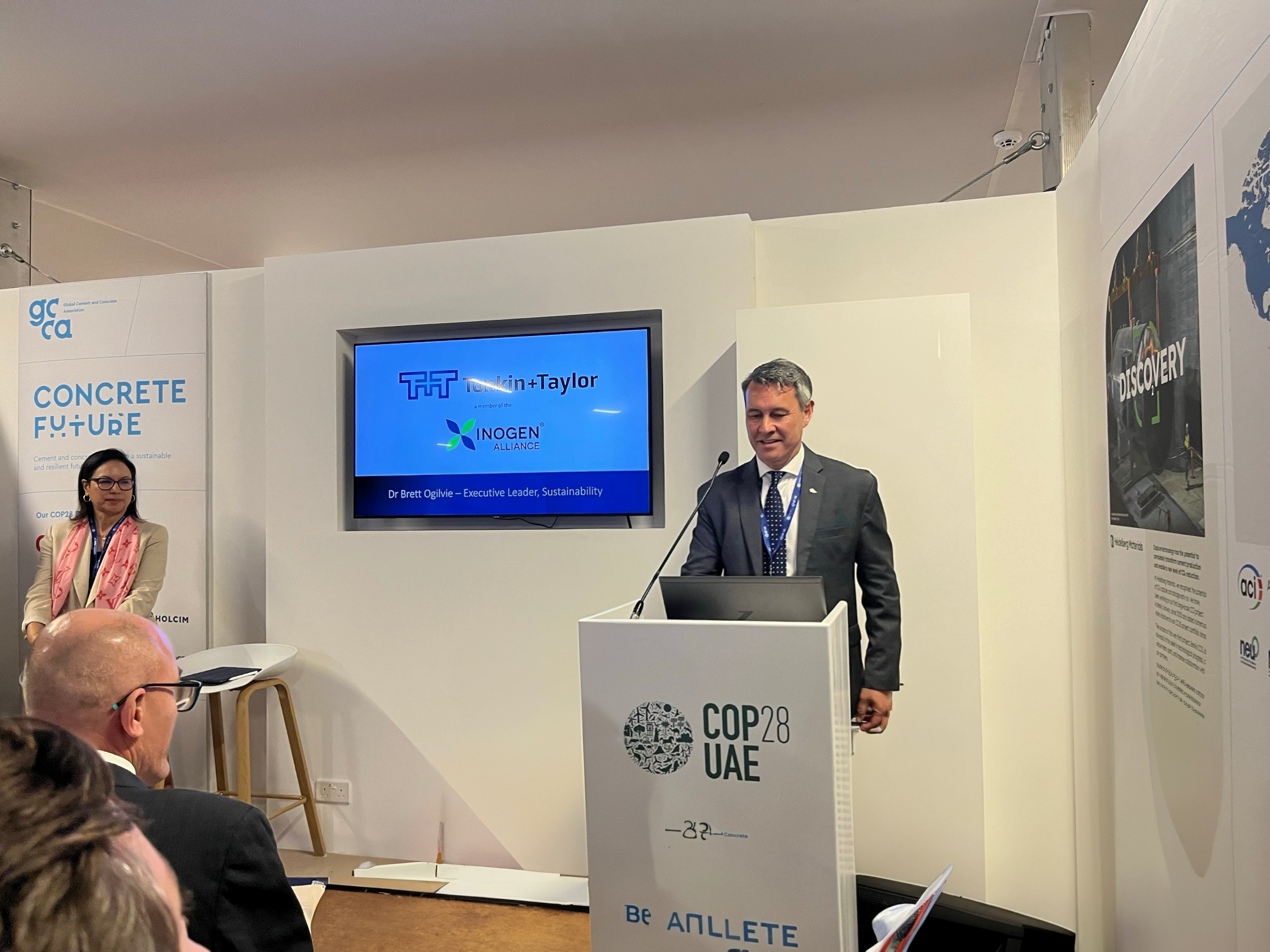Our Executive Leader of Sustainability and Digital, Brett Ogilvie, recently attended the United Nations Climate Change Conference (COP28) held in the United Arab Emirates. This is a significant annual event where nations, multi-lateral organisations, and NGOs come together to work towards positive environmental development and to tackle the effects of climate change.
This year’s conference was the largest multilateral gathering in history, with a record-breaking number of participants.
Brett has shared some key observations from the conference, as well as noteworthy developments that were discussed during the event.
1. Financing to address Loss and Damage in the Pacific Region
A significant aspect of COP28 was the attention given to Loss and Damage (L+D) financing, particularly in vulnerable regions like the Pacific. A key outcome for the Pacific was the confirmation of an L+D Fund, accompanied by financial commitments from several countries. ED is looking forward to working closely with Pacific Island Countries on the issue of loss and damage in 2024.
2. The Growing Presence of the Private Sector
One prominent trend at COP28 was the significant increase in private-sector participation. COP28 saw a staggering 90,000 to 100,000 attendees. This is approximately double the attendees at COP26 in 2021 and is attributed to a growing recognition within the private sector of the urgent need for climate action, which requires collaboration and innovation.

Michelle and Brett at COP28
3. Addressing Urgency: Global Stocktake and Emission Reduction Targets
The first-ever Global Stocktake (GST) at COP 28 emphasised the critical need for global greenhouse gas emissions to be reduced by 43% by 2030, compared to 2019 levels, to limit global warming to 1.5°C. Despite this urgency, the stocktake highlighted that nations are falling behind their Paris Agreement goals. The call to action includes tripling renewable energy capacity and doubling energy efficiency “double down, triple up” by 2030.
Parties are encouraged to present ambitious emission reduction targets by 2025, covering all sectors and aligning with the 1.5°C target. Although there’s no firm commitment to phasing out fossil fuels, the conference signalled a collective acknowledgment that the era of fossil fuels is drawing to a close.
4. Progress in Adaptation and Financial Support
COP28 marked considerable progress in adaptation efforts, with Parties agreeing on targets for the Global Goal on Adaptation (GGA). This framework outlines global consensus on adaptation targets, emphasising the need for financial, technological, and capacity-building support.
The UN’s Green Climate Fund received a boost, with total pledges reaching $12.8 billion, indicating a positive trajectory for increased financial support in the future.
5. Decarbonisation Progress in G20 Countries and Corporations
During a session hosted by the MSCI Sustainability Institute, representatives from the private sector shared insights on decarbonisation efforts. Institutional investors with hundreds of trillions in assets under management were present, highlighting a heightened interest from these firms.
Notable speakers emphasised the role of political will in driving meaningful change, especially at the local level. Strategies included digitising and managing energy demand, potentially reducing CO2 emissions by 30%.

Brett during Inogen Panel Discussion
6. Growth in Renewable Energy
A Ministerial event hosted by the Global Offshore Wind Association, highlighted the commitment to tripling offshore wind generation capacity. GOWA members discussed the potential of offshore wind to meet planetary energy demands. Brazil, a recent addition to GOWA, expressed enthusiasm for offshore wind as part of its clean energy portfolio.
The importance of grid investment emerged as a critical theme discussion centred on the necessity of transitioning the grid from one based on large, centralised power stations to more dynamic, decentralised grids. Presentations underscored the need for increased investment in grids to support the global transition to renewable energy. “There’s no transition without transmission” was a recurring theme.
A session focusing on the Asia-Pacific region highlighted the growing capacity of renewables, with the UAE currently boasting 6.5 GW. Discussions also delved into the potential of green hydrogen, with the new Green Hydrogen Standard and technologies paving the way for its integration into regional energy systems.
7. The Role of Reporting in Climate Action
The importance of reporting on climate action was a key topic of conversation. Emphasis was placed on the role of disclosure in enabling financial flows and fostering transparency. This highlights the ISSB’s efforts to create a standardised language for reporting climate risks, and New Zealand’s External Reporting Board’s (XRB) leadership in introducing the world’s first mandatory reporting requirement for these risks.
COP28 highlighted a growing recognition of the urgency to address climate change, with increased private sector engagement and a call for more ambitious targets. The conference outcomes signal a shift towards collaborative efforts, innovative solutions, and a collective commitment to building a sustainable and resilient future. As the world moves forward, the lessons and commitments from COP28 will be crucial in shaping global climate action.
Tackling an issue as multifaceted as climate change requires us to unite as a global community to make a sustained difference. Working with various stakeholders allows us to reimagine traditional approaches and create innovative solutions. ED is deeply committed to working with our clients across Australasia and globally to combat the impacts and causes of climate change. Together, we are working towards our common goal: to preserve a liveable planet for future generations.






